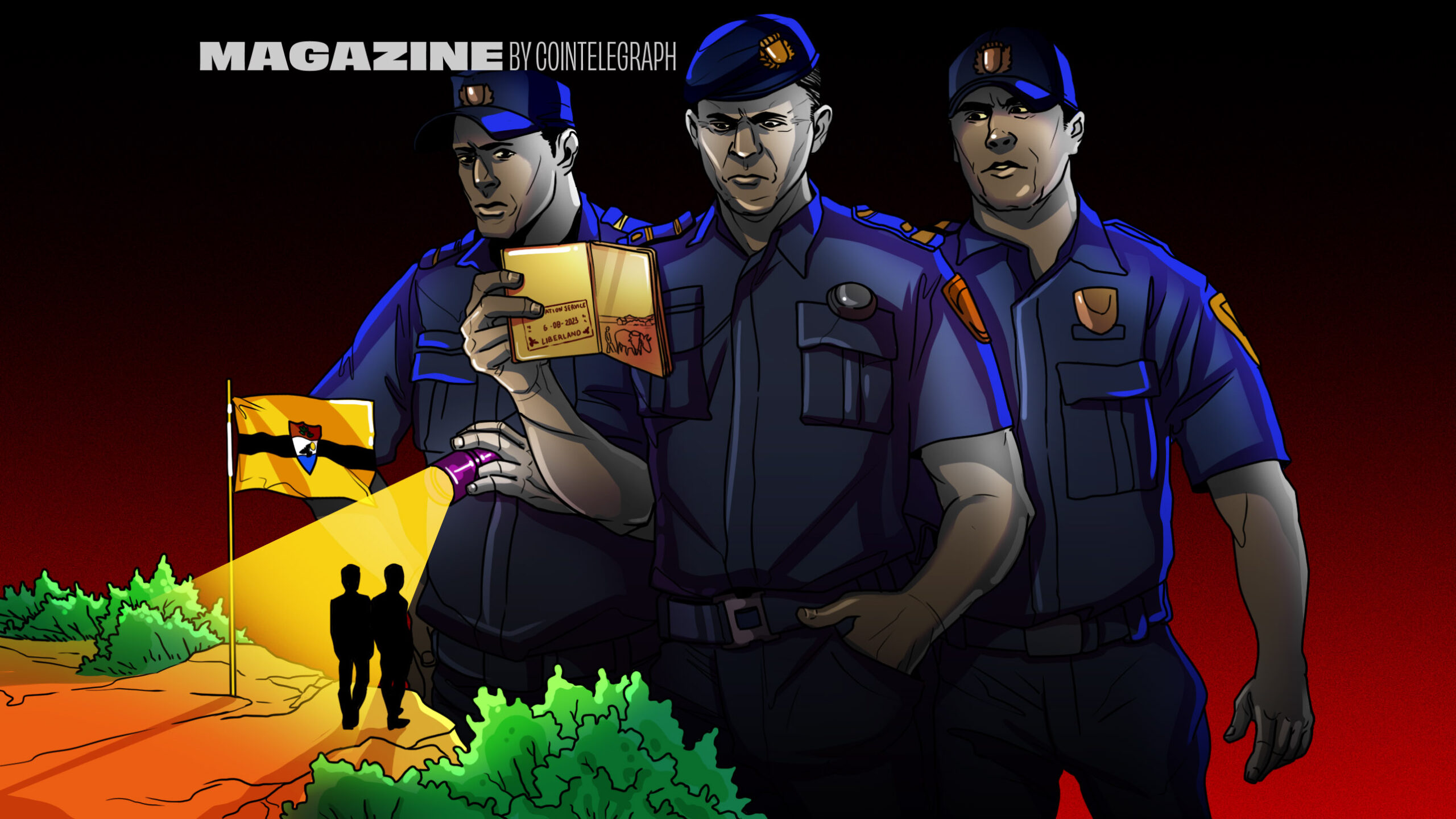Disembarking the Liberty houseboat moored off the frontier of the European Union, we’re met by a pair of Serbian police officers, their
Disembarking the Liberty houseboat moored off the frontier of the European Union, we’re met by a pair of Serbian police officers, their lit squad car nearly blinding us in the dark forest.
“How many people are staying on the boat?” one asks, holding a large dog at bay. “I really don’t recall,” says my colleague from Reuters. Fortunately, they let us go.
We must run, using phone lights to navigate the muddy path to the rally point a bit further in Croatia, in hopes that the departing presidential convoy has not left us behind.
We are meters from the border of Liberland, an unrecognized micronation of crypto fans claiming a piece of land between Croatia and Serbia on the Danube river. At just seven square kilometers — 2.7 square miles — the piece of land is roughly the size of Gibraltar.
Liberland “president” Vít Jedlička explains it had not officially been claimed by either neighboring country, making it terra nullius — nobody’s land — when he planted a flag there on April 13, 2015.
Though neither permanent infrastructure nor habitation has been established, the project has attracted a sizable community of Libertarian-minded folk. The de facto home in exile in Liberland is Ark Liberty Village, a nearby campground on the Serbian side.
It’s here that Magazine attends Floating Man, a Liberland festival including wilderness and water survival training, music, a two-day blockchain conference, and a daring visit to Gornja Siga, also called Liberland. Getting into the independent state is going to be tricky, says Jedlička.
“It’s good to get in and out of Liberland without being beat up.”
Breaking into Liberland
As the conference concludes, the president takes the stage in front of a huge Liberland flag, pointing out the borders of Croatia and Hungary and the best ways to cross into the micronation on the map.
The route straight into Croatia to access the Danube is fastest, but most perilous — the border police know about our gathering and are expecting an incursion and, as such, are likely to prevent suspicious vehicles from entering. Flags, stickers or even Liberland-branded beer are a no-go at the crossing, as they will be confiscated, he explains.


Entering the Schengen area through Hungary is more certain, with the Hungarians being indifferent to Liberland, making it possible to drive into the Croatian countryside and get to its land border with Liberland without prior detection.
The presidential convoy will go this route, while a boat carrying “settlers” will go upstream from a nearby port in Serbia to distract border patrols. Jet skis dragging inner tubes will take yet another route, with the aim of landing on Liberland’s island before interception.
“They may arrest you, but you are not breaking any law, so the longest they can hold you without charge is four hours.”
It feels like a military operation.
I begin to have doubts and unenlist myself from the jet-ski expeditionary troops to instead go with the convoy — I hadn’t bought a bathing suit, and being detained in international waters in my underwear was more than I’d do for a story.
Also read: Why are crypto fans obsessed with micronations and seasteading?
Not to mention that the last time someone took a jetski to the island, they were brutalized — tackled and kicked on the ground — by Croatian police in an incident for which the police offered an apology and disciplined the officer in question. The event was widely reported in the country, in part because Croatian police were operating outside the nation’s borders.


Terra nullius not on firm legal ground
From the perspective of international law, the validity of Liberland’s claims depends on which theory of state recognition is considered. According to Declarative Theory, supported by the 1933 Montevideo Convention on the Rights and Duties of States, an entity is a state — regardless of outside recognition — if it meets four criteria: a defined territory, permanent population, a government and the capacity to enter into relations with other states.
The area in question is neither Croatian nor Croatian-claimed — Jedlička says that matter was settled when Croatia entered the visa-free Schengen area at the start of 2023, with clearly defined borders being a set requirement of entry.
The land is also not Serbian. As un-owned and unclaimed land accessible from an international waterway, it appears to fit the definition of terra nullius, nobody’s land, which may be freely occupied. A permanent population is the only missing feature, which Jedlička says is only a matter of time. If they can get…
cointelegraph.com
